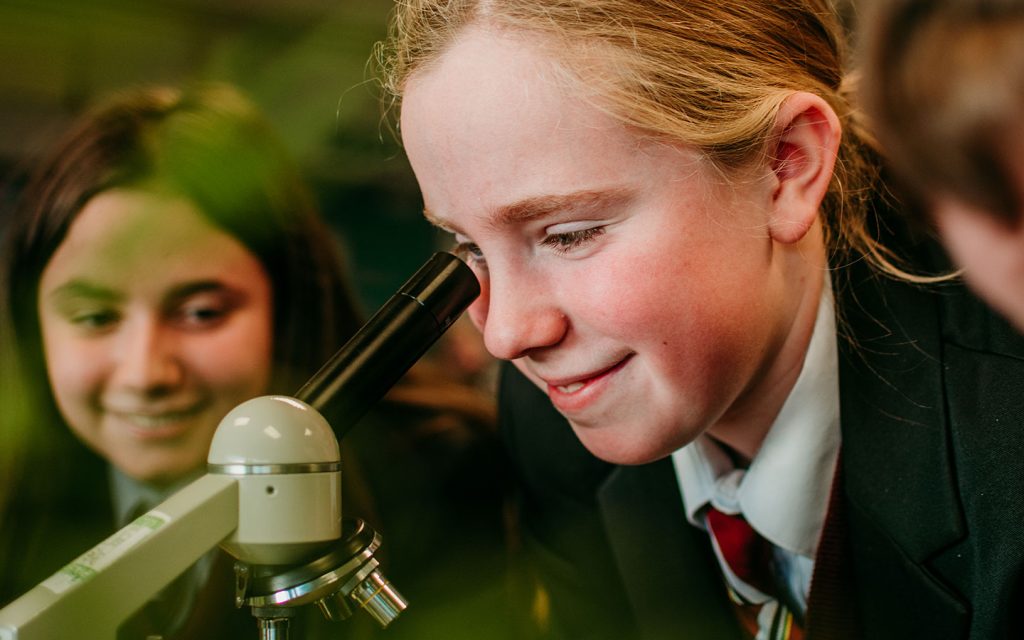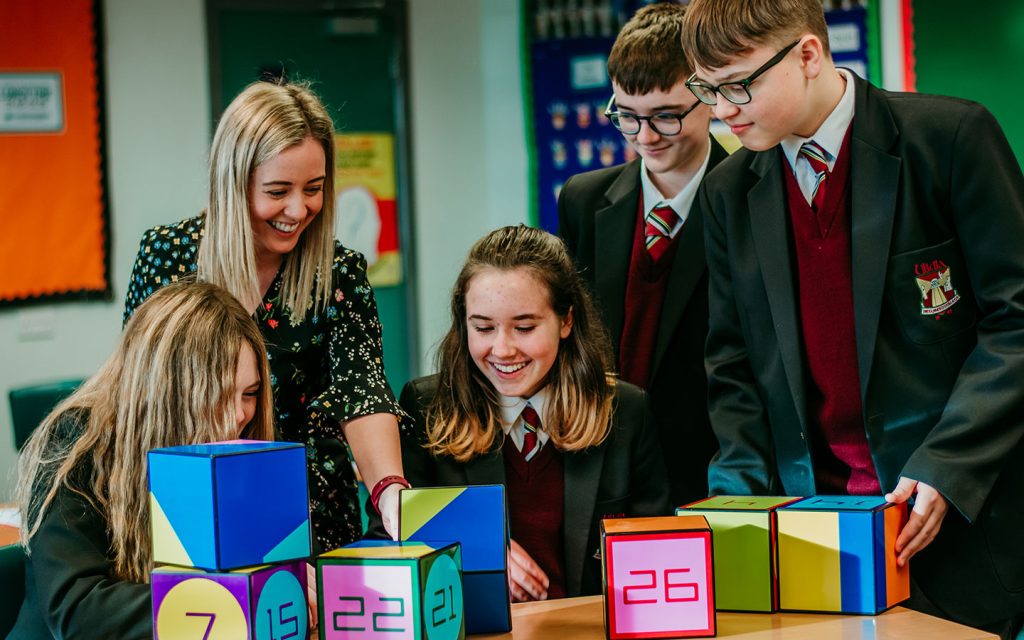
In Ulidia Integrated College we place a strong emphasis on meeting the needs of all abilities to the highest academic standards. We are passionate about high quality learning experiences and we want our students to share our passion.
We challenge pupils to develop new approaches to learning, to be encouraged to excel and to experience success in all areas of the curriculum.
At KS3 we offer two distinct but intertwined learning Pathways: Grammar and All Ability.
Each Pathway is characterised by identical content, but delivered at the optimum pace and challenge levels for individual learners. Both Pathways are combined for Form Class and a variety of practical subjects.
All pupils are given the opportunity to experience success. Where possible, pupils may move between Pathways if academic and pastoral data indicates this would be in their best interests. This responsive approach seeks to ensure pupils have access to a curriculum that always reflects their ability, is appropriately challenging and engages their interests throughout their College life.
By offering both Grammar and All Ability Pathways in one College, we are proud to be in the unique position of offering tailored education for the whole family – no longer do siblings have to attend different schools to have their individual needs and aspirations met.
GCSE and A level examination options are open to all students regardless of their Learning Pathway, if they demonstrate appropriate ability in that subject area. Our KS4 and KS5 curriculum offers are diverse; encompassing a variety of both academic and vocational courses designed to meet the needs of all learners.
We are committed to creating a high challenge learning environment which allows pupils to fulfil their potential. By tailoring subject options to each pupil’s ability and ambitions, we provide every opportunity to access University and future careers.

A Climate of Success
On our Grammar Pathway, young people are challenged to go the extra mile, to dedicate themselves to academic study and to reach for the highest possible achievements. Specific teaching strategies may include:- High order A level and GCSE skills begin being taught in year 8
- Individual learning styles recognized and developed
- Working at a pace and level designed to stimulate academic inquiry, creative thinking and critical reasoning
- Use of Google Classroom and other e-learning facilities to extend learning resources which are expected to be accessed from home as well as in school.
- Additional reading material to provide breadth and depth to knowledge
- Encouraging the ability to work independently through extended homework and/or projects
- Taking part in external competitions
- Higher Tier entry at GCSE external examinations to ensure high achievement leading to A level study
- High impact study skills emphasized throughout
- Providing work experience opportunities to broaden the pupils’ experiences and demonstrate practical career applications of the skills they have learned

Confidence and Accomplishment
Our All Ability Pathway requires the highest individual standards from each of our pupils according to their potential. We expect them to strive to become the best they can be, to celebrate and gain confidence from their accomplishments, and to go on to secure future success. Specific teaching strategies may include:- A Level and GCSE skills begin being taught in year 8
- Individual learning styles recognized and developed
- Working at an appropriate pace and level taking into account individual needs
- Use of Google Classroom and other e-learning facilities to extend learning resources which are expected to be accessed from home as well as in school.
- Year 8-10 focus on developing literacy and numeracy skills
- Differentiated teaching to develop the ability to work independently
- Taking part in external competitions
- Entry at GCSE and vocational external examinations to ensure individual success and achievement
- High impact study skills emphasized throughout
- Providing work experience opportunities to broaden the pupils’ experiences and demonstrate practical career applications of the skills earned
Where needed, the Learning Support Department provides the framework for the whole school to assume responsibility for inclusion. The range of provisions made by the Learning Support Department ensure that pupils with additional learning needs make appropriate progress and fulfil their potential.
The learning support staff are led by our SENCO Mrs Doig who manages the teachers and a number of Learning Support and General Assistants.
Learning support involves a degree of whole class provision, in-class support and some withdrawal provision for both basic Literacy and Numeracy. There is also regular contact with the appropriate external agencies that provide invaluable support when necessary.
As in everything we do, this works best in a connected partnership between parents, carers and school. Meeting with pupils and parents and drawing up mutually agreed Personal Learning Plans is vital to assessing, monitoring and reviewing the progress of our pupils with additional learning needs. The Learning Support Department aims to support pupils to experience success in all aspects of school life.
